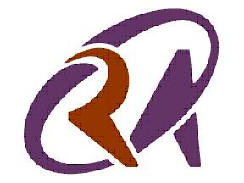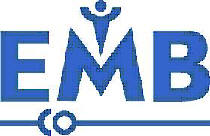Program at a glance (pdf file)
Tuesday 23 June 2009
| 08:30-19:00 | Registration |
| 10:00-13:00 | WS1 : Workshop - "Rehabilitation Robotics: Upper Extremity" |
| 10:00-13:00 | WS2 : Workshop - "Application of control theory and motor learning to rehabilitation robotics" |
| 10:00-18:00 | LS : Lab Session - Brain-Computer Interfaces for communication and control |
| 14:00-18:00 | WS3 : Workshop - Towards the standardization of robot/machine-aided stroke rehabilitation and assessment |
| 18:00-19:00 | Welcome Reception |
Wednesday 24 June 2009
| 07:30-15:00 | Registration |
| 08:30-08:45 | Welcome Address |
| 08:45-09:30 | Keynote Speech 1 : Prof. William S. Harwin |
| 09:30-10:30 | Podium Session POD1 |
| 10:30-10:45 | Coffee Break |
| 10:45-12:15 | Interactive Session INT1 |
| 12:15-13:15 | Lunch (included in registration) |
| 13:15-14:15 | User Forum 1 : Mr. Yoshiaki Imafuku / Mr. Jiro Yonezaki, O.T.R |
| 14:15-15:15 | Podium Session POD2 |
| 15:15-16:45 | Interactive Session INT2 |
| 16:45-17:00 | Coffee Break |
| 17:00-18:00 | Podium Session POD3 |
| 18:00-21:00 | Lab Tours / Intl. Steering Committee Meeting |
Thursday 25 June 2009
| 08:30-09:15 | Keynote Speech 2 : Prof. Banu Onaral |
| 09:15-10:30 | Podium Session POD4 |
| 10:30-10:45 | Coffee Break |
| 10:45-12:15 | Interactive Session INT3 |
| 12:15-13:15 | Lunch (included in registration) |
| 13:15-14:30 | User Forum 2 : Mr. Kazuo Seike / Prof. Yukio Saito |
| 14:30-15:45 | Podium Session POD5 |
| 15:45-16:00 | Coffee Break |
| 16:00-17:30 | Interactive Session INT4 |
| 17:30-18:45 | Podium Session POD6 |
| 19:00-21:30 | Gala Dinner (included in registration) |
Friday 26 June 2009
| 08:30-09:15 | Keynote Speech 3 : Prof. Koji Ito |
| 09:15-10:45 | Podium Session POD7 |
| 10:45-11:00 | Coffee Break |
| 11:00-12:30 | Interactive Session INT5 |
| 12:30-12:45 | Conference Closing & Awards Ceremony |
| 12:45-13:30 | Boxed Luch |
| 13:30-17:00 | Rehabilitation Robotics Research Roadmap Discussion |
Pre-conference Special Sessions: June 23rd
Workshops
WS1: Rehabilitation Robotics: Upper Extremity
WS2: Application of recent advances in motor learning to rehabilitation robotics
WS3: Towards the standardization of robot-aided stroke rehabilitation and assessment
LS: Brain-Computer Interfaces for communication and control (LS_p1: Tutorial, LS_p2: Demonstration)
Main Conference Program: June 24-26
Podium Session (download PDF File)
POD1: Therapeutic Robotics
Sessions Co-chairs: James Patton (Univ. of Illinois in Chicago, RIC, USA), Takehito Kikuchi (Osaka Univ., Japan
POD2: Cybernics & Artificial Human Exoskeletons
Sessions Co-chairs: Axel Graeser (Univ. of Bremen, Germany), Kazuo Kiguchi (Saga Univ., Japan)
POD3: Biocooperative Robotics & Mental & Physical Rehabilitation Engineering
Sessions Co-chairs: Rui Loureiro (the Univ. of Reading, UK), Yamamoto Shinichiro (Shibaura Inst. of Tech., Japan)
POD4: Assistive Robotics & Therapeutic Robotics
Sessions Co-chairs: Taisuke Sakaki (Kyusyu Sangyo Univ., Japan), Herman van der Kooij (Univ. of Twente, The Netherlands)
POD5: Mechatronics in Prosthetics & Robotics for Caregiving
Sessions Co-chairs: Massimiliano Zecca (Waseda Univ., Japan), Yoshiyuki Takahashi (Toyo Univ., Japan)
POD6: Companion Robots in Eldercare & the Use of Robots in Play for Children with Disabilities
Sessions Co-chairs: Takashi Komeda (Shibaura Inst. of Tech., Japan), Ben Robins (Univ. of Hertfordshire, UK)
POD7: Robotics for Human-Motion Analysis, Evaluation & Clinical Experience
Sessions Co-chairs: Thompson Sarkodie-Gyan (Univ. of Texas at El Paso, USA), Pyung-Hun Chang (KAIST, South Korea)
Interactive Session (download PDF File)
INT1:
Therapeutic Robotics 1
Evaluation & Clinical Experience 1
Robotics for Human-Motion Analysis 1
Artificial Human Exoskeletons 1
INT2
Cybernics [SIG]
Artificial Human Exoskeletons 2
Therapeutic Robotics 2
Neural-Machine Interfaces & Control
INT3:
Biocooperative Robotics[SIG]
Mental & Physical Rehabilitation Engineering [SIG]
Assistive Robotics 1
Therapeutic Robotics 3
Evaluation & Clinical Experience 2
INT4:
Mechatronics in Prosthetics
Robotics for Caregiving
Robotics for Human-Motion Analysis 2
Assistive Robotics 2
Therapeutic Robotics 4
INT5:
Robotics for Human-Motion Analysis
Evaluation & Clinical Experience 3
Companion Robots in Eldercare [SIG]
The Use of Robots in Play for Children with Disabilities [SIG]
Therapeutic Robotics 5
Special Interest Group (SIG) Organizers
Cybernics: fusion of human, machine and information systems
/ Yoshiyuki Sankai, Yasuhisa Hasegawa, Kenji Suzuki (University of Tsukuba, Japan)
Biocooperative Robotics
/ Robert Riener (ETH Zurich, Switzerland)
Mental & Physical Rehabilitation Engineering
/ Tasuku Miyoshi, Masaki Yamaguchi (Iwate Univ., Japan)
Companion Robots in Eldercare
/ Kerstin Dautenhahn, Farshid Amirabdollahian (University of Hertfordshire, UK)
From Isolation to Social Inclusion: the use of robots in play for children with disabilities
/ Ben Robins, Kerstin Dautenhahn (University of Hertfordshire, UK)
Keynote Speakers
| Professor William S. Harwin | 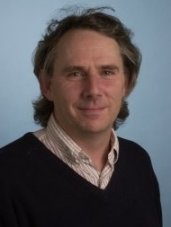 |
|
|---|---|---|
| Professor of Department of Cybernetics, University of Reading, UK | ||
| "Impedance Mismatch: Some Differences between the Way Humans and Robots Control Interaction Forces" | ||
| Professor Banu Onaral | 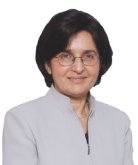 |
|
|---|---|---|
| H.H. Sun Professor and Director, School of Biomedical Engineering, Science and Health Systems Drexel University, USA | ||
| "Functional Optical Brain Imaging: Toward noninvasive cognitive prosthetics" | ||
| Professor Koji Ito | 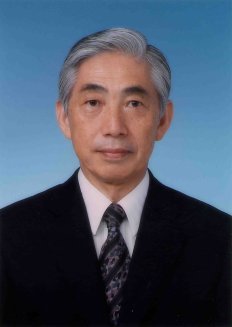 |
|
|---|---|---|
| Professor of Department of Computational Intelligence and System Science, Tokyo Institute of Technology, Japan | ||
| "Adaptive Motor Behaviors through Dynamic Interactions among the Body, Brain and Environment" | ||
Interactive Sessions
The interactive session forms the bases of the conference.
ALL contributed papers will be presented in interactive sessions, while few will in addition be presented in podium sessions.
All papers are treated as identically in the Proceedings and the IEEE Xplore.
It is our intention to have podium presentations with topics of general interest, while interactive presentations allow in-depth discussion of each work.
When considering the ICORRfs tradition of valuing demonstration, we feel that interactive presentations are suitable way of creating a vibrant atmosphere.
Interactive session presenters will have at their disposal:
a small booth with table (size: 1.2 x 0.45 m, 0.7 m high), a power outlet (100V), wireless internet access (the numbers are limited) and a large board (1.8 m wide, 2.1 m high).
Presenters are encouraged to bring physical prototypes or scale models of their system, video or animations, continuous slide show presentations, hand-out flyers and other printed matter or CD-ROM, to support interaction with the conference delegates.
Posters should be mounted using push pins. Push pins will be provided. Please do not write, paint, or use glue on the poster board.
One-and-a-half hour of scheduled presentation is available for interactive presenters.
The booth will be available to interactive presenters for half a day, i.e. morning or afternoon.
Set-up / Take Down
Material for the interactive sessions should be set-up for the presenterfs specified session, morning and afternoon of Wednesday, Thursday or Friday.
Please follow the following instructions:
Check your session in the next table. The set-up is possible from 8:00 hours for the morning session and 13:00 hours for the afternoon session. The set up should be finished no later then 30 minutes before the session starting time. You can start taking down your materials when the session is over. Please clear the booth no later then the end of the take-down period so that the next presenter can prepare their set-up.
Author(s) should be present at their booth during the Session Period. Please set a gCore Time,h minimum 30minutes, within your Session Period and specify this on the board. The corresponding presenter is required to be at the site to take questions during the Core Time.
| Interactive Session # | Set-Up Period | Session Period | Take Down Period | |
| INT1 | 8:00 - 10:15 | 10:45 - 12:15 | 12:15 - 13:00 | |
| INT2 | 13:00 - 14:45 | 15:15 - 16:45 | 16:45 - 18:00 | |
| INT3 | 8:00 - 10:15 | 10:45 - 12:15 | 12:15 - 13:00 | |
| INT4 | 13:00 - 15:30 | 16:00 - 17:30 | 17:30 - 18:45 | |
| INT5 | 8:00 - 10:30 | 11:00 - 12:30 | 12:30 - 14:00 |
Materials not taken down by the specified take down period will be collected by the conference organizers and discarded if not claimed before Friday June 26th 14:00 hours (the end of the conference). Conference organizers are not responsible for the loss or damage to the materials that the organizers had to collect.
Podium Sessions
The podium session speakers are requested to make their presentation TWICE.
All podium session speakers are to make their first presentation at the podium session with projection support.
Presenters will be provided with microphone, beamer, and pointer.
The second presentation will be in the interactive session with the materials listed in the above interactive session section.
Podium session speakers should prepare a 12 minute presentation, leaving 3 minutes for short dialog, advertisement for their interactive session and transition to the next speaker.
Session chairs, which are moderators, have been asked to strictly enforce this time limit.
Speakers should introduce themselves to their session chair and confirm their PC-projector operation prior to their session.
Speakers should arrive in main lecture room 15 minutes prior to the session in which they are speaking.
Organized Special Interest Group [SIG]
Special Interest Groups, SIGs, are formed to address focused research topics and new concepts.
The SIG contributed papers will be presented as a part of the interactive sessions, and few papers are selected for podium presentations.
SIG presenter should follow the instruction for the interactive and podium sessions for preparation.
Furthermore, SIG Organizers are encouraged to make efforts to lead discussions for their presenters.
The organizer can set up a starting time and form serial short presentations using the poster or PC to call the audiences' attention.


